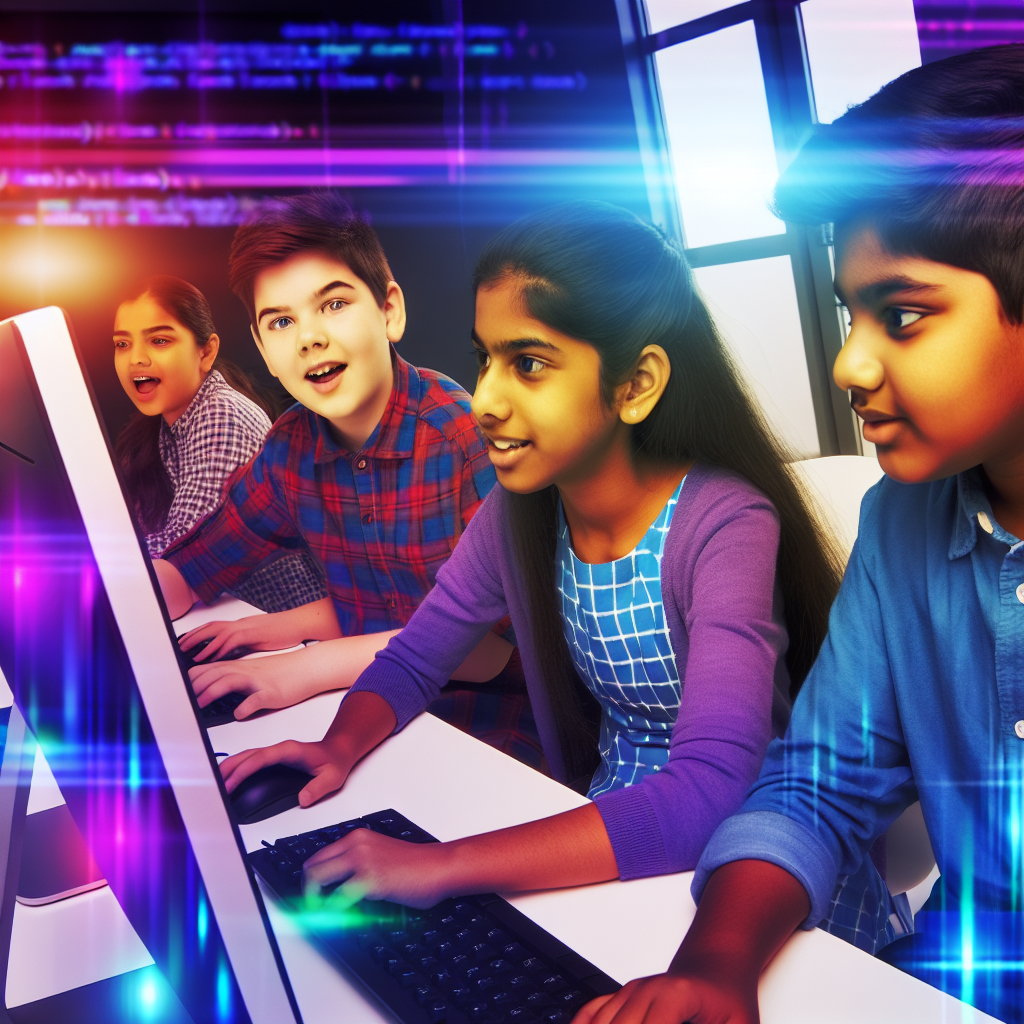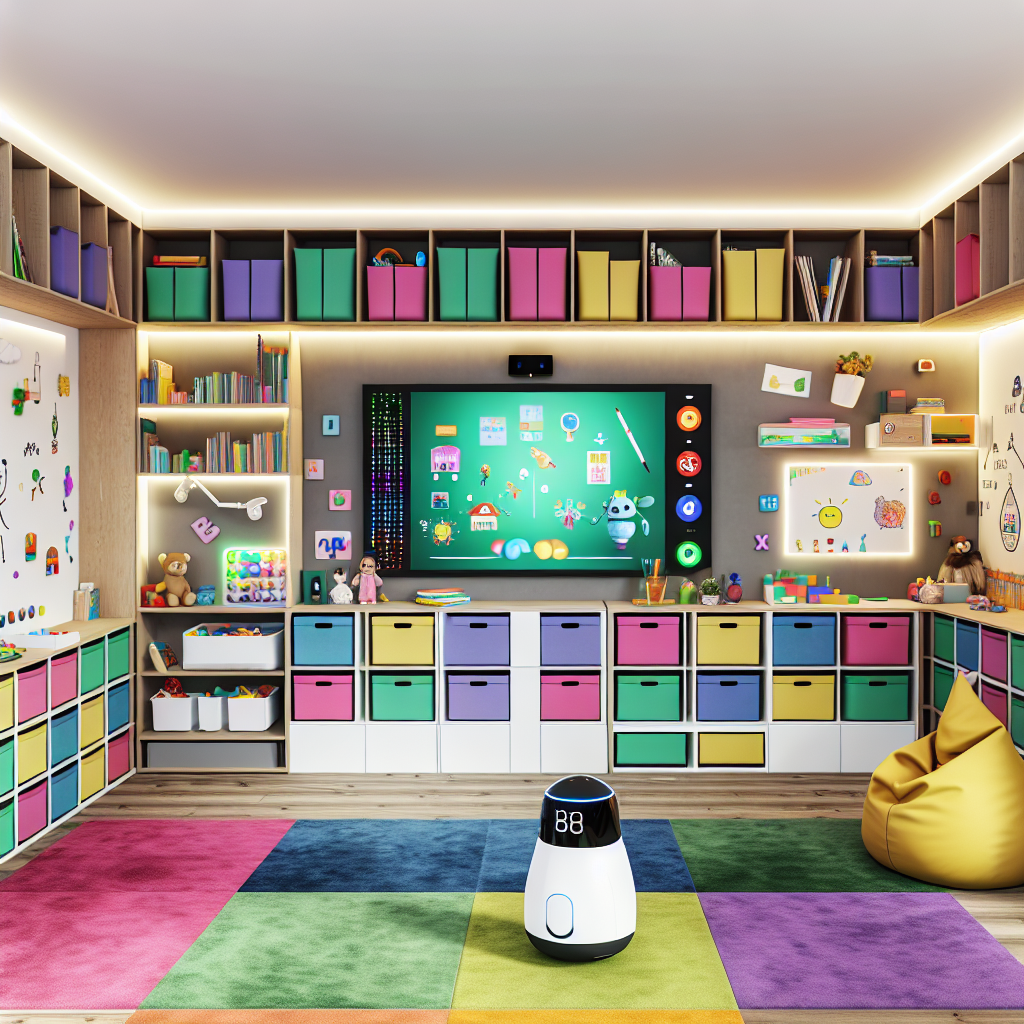Advanced Coding Programs for Young Innovators
Introduction
In today’s rapidly evolving digital landscape, coding has transcended its niche status and become a cornerstone of modern education. For high-net-worth parents seeking to empower their children with future-forward skills, advanced coding programs present an elite opportunity to nurture innovation, critical thinking, and computational savoir-faire from a young age.
Long gone are the days where coding was viewed as a pursuit exclusive to adult engineers and developers. Today, even primary-age children are being introduced to robust platforms that teach Python, JavaScript, machine learning, artificial intelligence (AI), and other skill sets once considered too advanced for early learners.
As families of means continue to invest in personalized learning, access to curated, high-level coding curriculums designed by Ivy League graduates, industry experts, and educational psychologists has expanded. Luxury coding inclusives are more than just after-school activities – they offer small class sizes, one-on-one mentorship with leading technologists, real-world entrepreneurial program tie-ins, and cross-disciplinary applications using art, mathematics, and science. These offerings are establishing the groundwork for tomorrow’s leaders in STEM innovation.
For example, platforms like The Coding School’s AI4ALL initiative or the MIT Young Innovators Program cater specifically to advanced learners and precocious tech enthusiasts under 18. These programs allow participants to write real executable code, contribute to groundbreaking research, and design original applications with AI governance and ethical tech in mind.
What distinguishes a quality coding program from a run-of-the-mill online course isn’t just the platform or technology stack, but the pedagogical design. The curriculum must be developmentally aligned, project-based, and personalized enough to challenge exceptionally gifted learners without overwhelming them. For children growing up immersed in the interconnected richness of digital environments, understanding how to build – not just consume – technology is paramount.
Acquisition of these skills doesn’t only lead to future career readiness – it helps shape problem-solvers who can create ethical, inclusive, and transformative digital products. Parents investing in youth-centered luxury education options are increasingly seeking programs that balance rigorous technical instruction with creative expression and entrepreneurial capacity.
These needs are being met in a growing number of elite programs designed to stimulate intellectual depth and foster a professional-level coding capacity in children as young as age 7. If cultivating tech fluency and nurturing disruptive thinking are priorities for your family, these advanced coding programs offer a head start that is both academically significant and socially impactful.
Features and Scientific Studies Supporting Advanced Coding in Childhood
The value of early coding education has been substantiated by multiple academic and cognitive science communities. Neuroscientists highlight the importance of engaging young minds during the neuroplastic “golden years” – ages 5 to 12 – when children possess exceptional capacity for abstract thought, pattern recognition, and memory retention.
According to a study in Elsevier’s Educational Research Review, early exposure to computational thinking significantly enhances a child’s problem-solving aptitude, logical sequencing, and resilience in tackling complex challenges.
The 2019 research study “Getting Smart About E-Schooling,” led by the Joan Ganz Cooney Center (affiliated with Sesame Workshop), revealed that when advanced learners engage in project-based coding environments, they demonstrate marked improvement in executive function and working memory. These benefits multiply when instruction includes components such as collaboration with peers, mentorship by adult technologists, and applications in real-world social or scientific contexts.
Similarly, the World Economic Forum reports that by 2025, over 50% of all workers will need reskilling, with technology proficiency and data analytics ranked among the most essential skill sets. Children introduced to coding during their formative years are statistically better prepared for interdisciplinary careers in fields such as:
– Biocomputing
– Fintech
– Climate modeling
– Space exploration
Leading platforms like CodeREV Kids, iD Tech Academy, and Juni Learning offer advanced pathways that include creating fully functional apps, building interactive games using Unity and C#, and developing AI-powered business proposals inspired by real startup pitching formats.
Medical studies have also uncovered additional cognitive benefits. In an article published in Learning, Media and Technology, researchers explored how advanced coding tasks reinforce “grit” and a long-term achievement orientation in gifted youth. In these programs, students cycle through experimentation, debugging, and iteration – a process that mirrors scientific experimentation and encourages deep focus and resilience.
Moreover, recent findings from the University of California, San Diego, report that children introduced early to platforms like Python and Scratch experience stronger academic outcomes in both language arts and mathematics. These students demonstrate what researchers describe as “cognitive bilingualism” – enhanced ability to shift between logical frameworks and narrative structures, making them more effective communicators, abstract thinkers, and planners.
Conclusion
Incorporating advanced coding programs into your child’s educational pathway is no longer a novel luxury – it is a strategic imperative. Whether your family vision includes future change-makers, innovators, or entrepreneurs, coding fluency provides both intellectual empowerment and ethical responsibility.
By investing in elite, age-appropriate coding programs tailored to young prodigies, parents of means equip their children to not just succeed in a technological future – but to shape it. These individuals will no longer just navigate the digital world – they will build it, define it, and make purposeful contributions that extend far beyond the screen.
Empower curiosity. Foster brilliance. Let coding be the language that defines your child’s digital legacy.

Dominic E. is a passionate filmmaker navigating the exciting intersection of art and science. By day, he delves into the complexities of the human body as a full-time medical writer, meticulously translating intricate medical concepts into accessible and engaging narratives. By night, he explores the boundless realm of cinematic storytelling, crafting narratives that evoke emotion and challenge perspectives. Film Student and Full-time Medical Writer for ContentVendor.com




